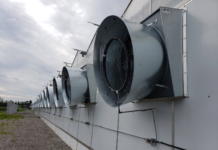Finding the right industrial property is a crucial step for businesses looking to expand, relocate, or start new operations. Available industrial properties come in many shapes and sizes, each with unique features that can affect how well they meet a company’s needs. Whether you are a small manufacturer, a large distribution company, or involved in logistics, choosing the right property is essential for success. This article will guide you through the top factors to consider when searching for available industrial properties.
Location and Accessibility
One of the most important factors to consider is the location of the industrial property. The location affects how easily your goods can be shipped and received, as well as how accessible the site is for employees and suppliers. Properties near major highways, ports, railroads, or airports tend to offer better connectivity for transporting products. Additionally, being close to your target market or supply chain partners can reduce transportation costs and delivery times.
It is also important to think about local infrastructure. Check if the area has good road conditions and public transportation options. Accessibility is not just about convenience but also about the efficiency of your business operations.
Size and Layout of the Property
The size of the industrial property should match your current needs and allow some room for future growth. It’s important to analyze how much space your equipment, inventory, and workforce will require. Available Industrial Properties may range from small warehouses to large manufacturing plants, so knowing your space requirements will help narrow down your options.
The layout is equally important. Look for properties that provide an efficient flow for your operations. For example, you might need loading docks, office spaces, storage areas, or special rooms for manufacturing. A well-designed layout can improve productivity and reduce unnecessary movement within the facility.
Zoning and Land Use Regulations
Before making any decisions, verify the zoning regulations for the industrial property you are interested in. Zoning laws determine what types of activities are allowed on the site. Some industrial properties are designated for light manufacturing or warehousing, while others permit heavy industrial use.
Understanding zoning restrictions will help avoid legal issues and ensure that your business activities comply with local laws. Additionally, consider any future changes in zoning policies that may affect your property use.
Condition and Age of the Property
The physical condition and age of the building can greatly impact maintenance costs and the safety of your operations. Older industrial properties may have outdated systems such as plumbing, electrical wiring, or HVAC, which might require costly upgrades or repairs.
A thorough inspection of the property is necessary to assess structural integrity and identify any potential issues. Available industrial properties that have been well maintained often provide better value and fewer surprises after purchase or lease.
Utilities and Facilities
Check the availability and capacity of essential utilities such as water, electricity, gas, and telecommunications. Industrial operations usually require high power consumption and reliable utility services. Make sure the property’s utilities can support your equipment and processes.
Some industrial properties may also offer additional facilities like fire safety systems, security services, parking spaces, and waste disposal options. These features contribute to a safer and more convenient working environment.
Cost and Financial Considerations
Budget is a key factor when searching for available industrial properties. Consider not only the purchase price or rental cost but also the expenses related to taxes, insurance, maintenance, and potential renovations.
It is advisable to compare multiple properties to understand market rates and negotiate favorable terms. In some cases, choosing a slightly more expensive property with better features and lower operating costs might be more cost-effective in the long run.
Environmental and Safety Factors
Environmental regulations and safety standards are critical in industrial property selection. Depending on your business type, you may need to ensure the property meets specific environmental guidelines related to waste management, pollution control, and emissions.
Additionally, safety measures such as proper ventilation, emergency exits, and compliance with occupational health standards are important to protect your employees and avoid legal liabilities.
Future Expansion Potential
Finally, think about your company’s long-term plans. Available industrial properties that offer room for expansion or flexibility in use can save you from the hassle and cost of relocating in the future.
Check if the property has extra land available or the possibility to modify existing structures. A property that can grow with your business adds significant value.
Final thoughts
Choosing the right industrial property is a complex process, but focusing on these key factors will help you make a well-informed decision. By carefully considering location, size, zoning, condition, utilities, cost, environmental issues, and future growth potential, you can find available industrial properties that best suit your business needs and support your success for years to come.










